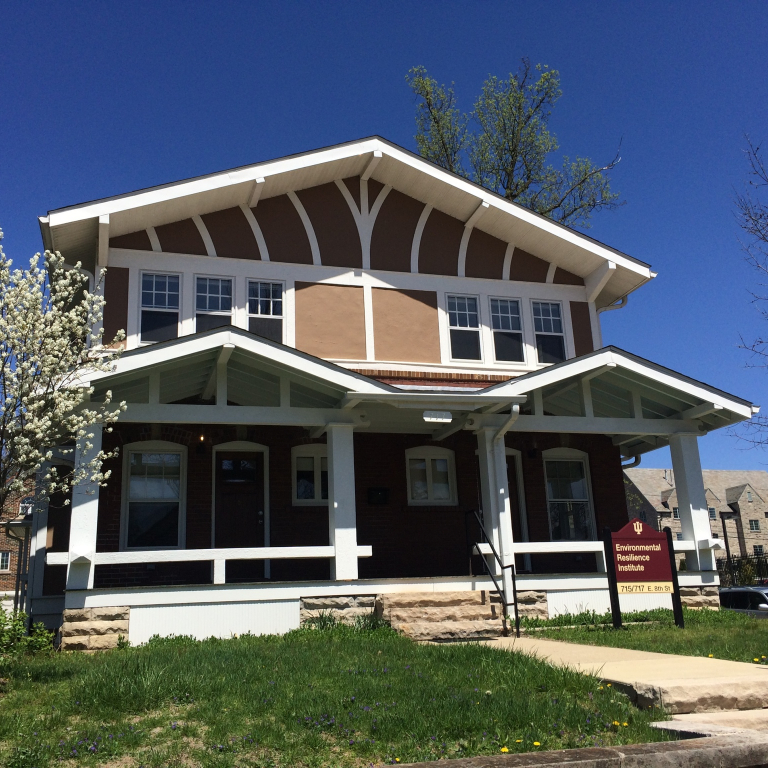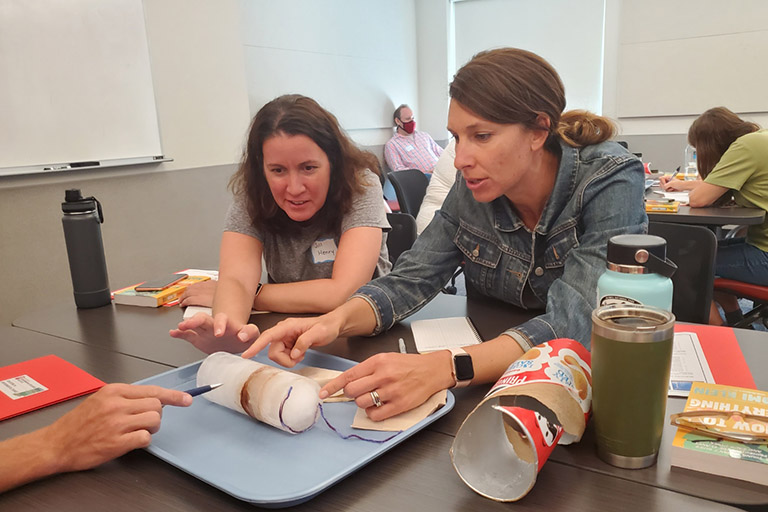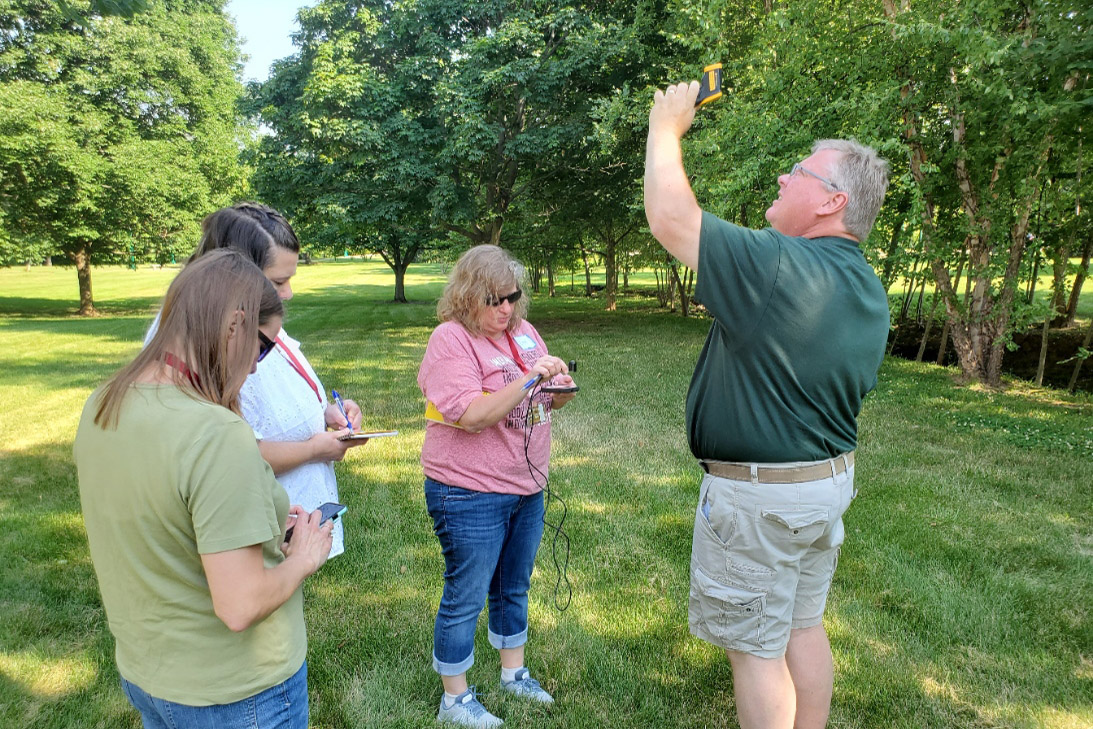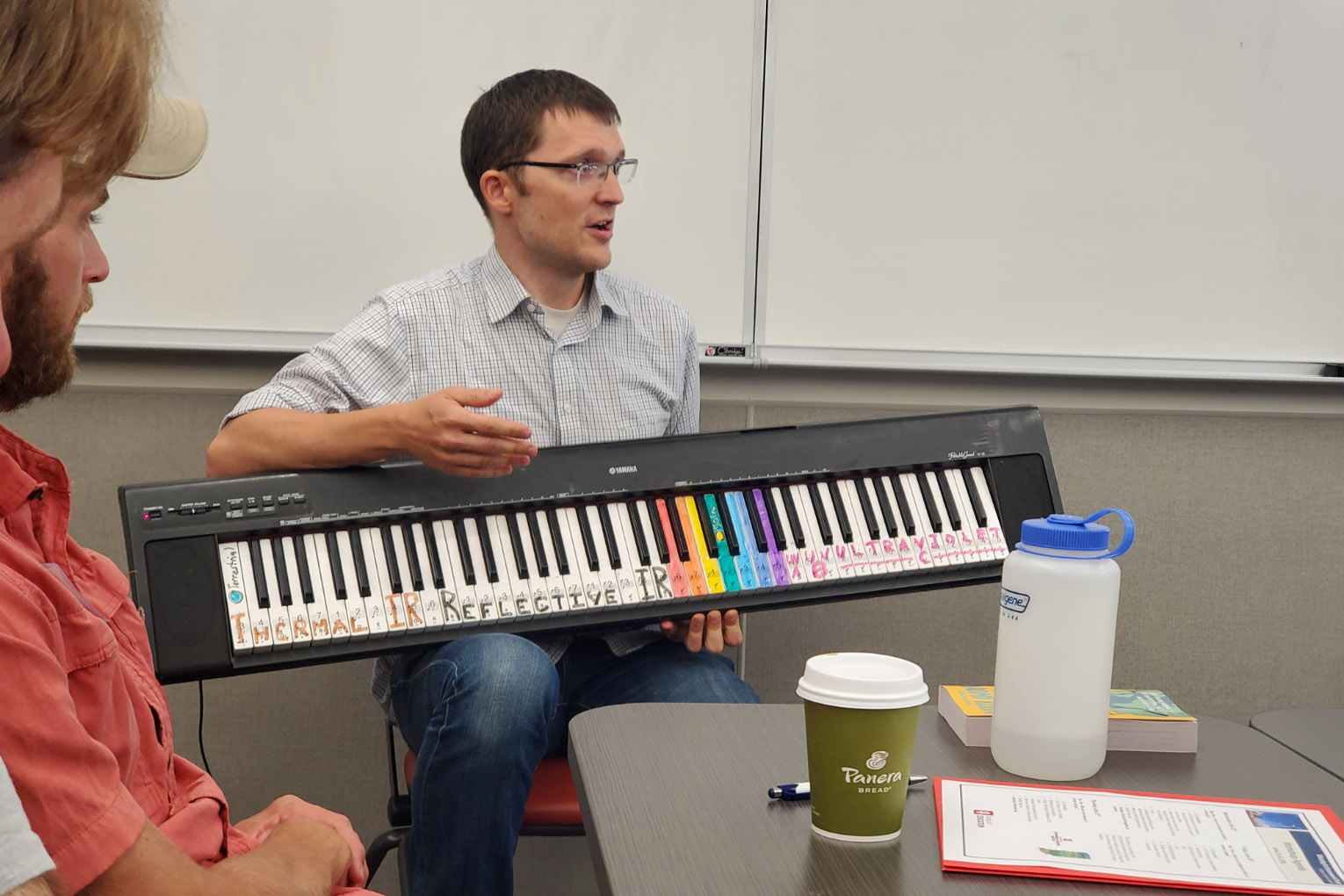Indiana University Professor Paul Staten opened this year’s Educating for Environmental Change (EfEC) Summer Science Institute by showing a room full of science teachers a keyboard with keys decorated in permanent marker. It was a demonstration on the relationship between heat and light wavelengths, with the keys representing the electromagnetic spectrum, including wavelengths invisible to the human eye that produce heat.
He struck a wide chord on the keyboard. “The sun is so hot, it’s doing a full-on Hans Zimmer on this piano,” he said, a reference to the aggressive, wall-of-sound style of the famous film composer.
Held the week of June 22, this year’s free, 3-day Summer Science Institute provided demonstrations and resources on climate change education to middle- and high-school science teachers from across Indiana and Illinois. The workshop is part of an array of professional development events for science teachers put on in collaboration with the Environmental Resilience Institute, WonderLab Museum of Science, Health, and Technology, and the IU School of Education.
Topics covered ranged from the basics of scientific field observations to specific topics on climate science like carbon dioxide, soil respiration, geoengineering, and the ozone layer. The workshop also provided free materials to teachers for the various experiments and classroom activities.
One of the major goals of EfEC is to bridge an existing resource gap for teaching the science of climate change. Chloe Carter, a science teacher at Crawfordsville High School in Crawfordsville, Ind., just finished her first year of teaching AP Biology and environmental science. She said the Summer Science Institute proved to be a valuable experience for a new teacher like her.
“I didn’t get a very comprehensive environmental education going through college as a biology major, so to be able to supplement what I know about life with information about the planet that supports it is really valuable,” she said.
Another goal of the workshop is to provide strategies to help teachers navigate the politics of human-caused climate change. Many of the demonstrations over the course of the workshop focused on ways students could test the phenomenon of global warming on their own, either through direct observation or through climate models.
“It’s not just an abstract idea from models, it’s measurable quantities that you can measure by yourself with your hands, and it’s not so different from the measurements taken from outer space by satellites,” Staten said.
For Kathy Daniels, an environmental science and biology teacher at Mississinewa High School in Gas City, Ind., lessons that empower students to become citizen scientists can be a major benefit in the classroom.
“I appreciate the idea of depoliticizing and trying to help students focus on just the science,” she said. “Letting them do the science themselves and make their own connections helps build trust.”
Kirstin Milks, one of the workshop presenters and a Bloomington High School South science teacher, said that climate change is a topic that can successfully reach many students with the right approach.
“Where I teach, climate change is a politicized issue,” Milks said. “But everybody cares about something directly connected to climate change. You just have to find it.”
About the Environmental Resilience Institute
Indiana University’s Environmental Resilience Institute brings together a broad coalition of government, business, nonprofit, and community leaders to help Indiana and the Midwest better prepare for the challenges of environmental change. By integrating research, education, and community, ERI is working to create a more sustainable, equitable, and prosperous future. Learn more at eri.iu.edu.






